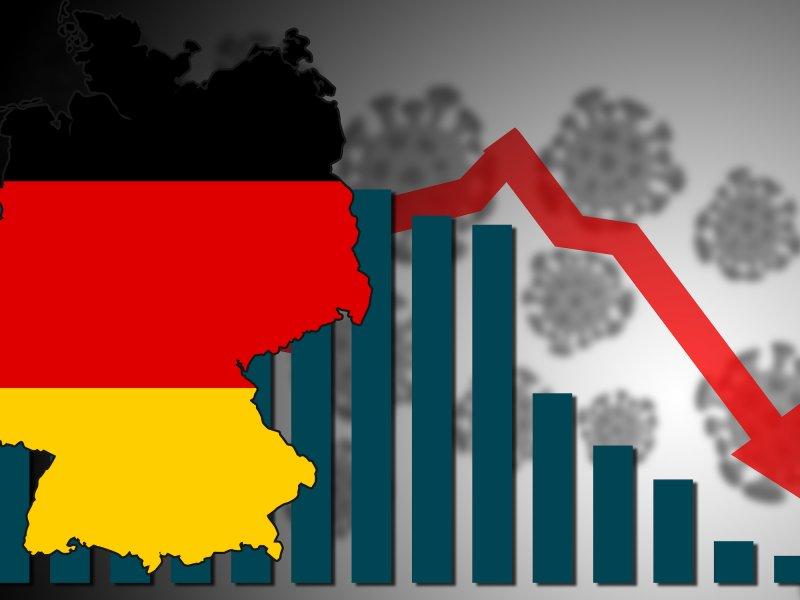
Europe’s economy faced a flurry of key data releases on November 25, 2025: Germany’s November IFO Business Climate Index unexpectedly edged down, the flash HCOB Composite PMI fell sharply, while the final Q3 GDP figure maintained a 0.3% year-on-year growth—though market concerns over potential downward revisions have intensified. On the same day, the UK’s November CBI Retail Sales Balance was officially released, providing a crucial clue for assessing the vitality of British consumer demand. As the Euro Zone’s economic engine, Germany is experiencing a marginal slowdown in growth momentum, compounded by uncertainties surrounding the UK’s consumption recovery, placing Europe’s economic recovery on a dual track of challenges.
Germany’s economic "cooling signals" have converged in November. Data from the Munich-based IFO Institute for Economic Research showed that the country’s Business Climate Index slipped slightly from 88.4 in October to 88.1 in November, falling short of the market expectation of 88.5. This figure extends the cautious tone that has prevailed since mid-year. While businesses’ assessment of the current situation improved modestly—with the Current Assessment Index rising from 85.3 to 85.6—a significant drop in the Expectations Index emerged as the core drag on overall sentiment. The November Business Expectations Index fell from 91.6 the previous month to 90.6, well below the market’s forecast of stability, reflecting a severe lack of confidence among enterprises in a rapid economic recovery. Clemens Fuest, President of the IFO Institute, stated outright that the manufacturing outlook has been "severely hit," with businesses generally lacking faith in a short-term recovery. This also underscores lingering doubts about the government’s plans to boost growth through infrastructure and defense investments.
PMI data further confirms the pressure on Germany’s economic growth. The flash HCOB Composite PMI for November plummeted from 53.9 in October to 52.1, a two-month low and below the market expectation of 53.7, indicating a marked slowdown in private sector expansion. Breaking it down, the manufacturing sector’s contraction has deepened: the flash PMI dropped from 49.6 to 48.4, a six-month low, in stark contrast to the market’s expected slight rebound to 49.8. Export sales saw a particularly sharp decline, falling at the fastest pace since January. Weak demand has led to a continuous reduction in unfilled orders across industries, with layoff rates also picking up slightly. Although the services sector remains in expansion territory, its growth momentum has weakened significantly—the flash PMI fell from 54.6 to 52.7, also below the expected 54.0—becoming a key factor dragging down the composite index. Cyrus de la Rubia, Chief Economist at Hamburg Commercial Bank, commented that these data represent a major setback for Germany, with the economy likely to advance only at a modest pace in the fourth quarter.
The final Q3 GDP data released on the same day failed to deliver positive surprises. Figures showed that after seasonal and calendar adjustments, Germany’s real GDP grew by 0.3% year-on-year, unchanged from the revised previous value, with a 0.0% quarter-on-quarter increase and a 0.0% annualized growth rate. While in line with market expectations, the inherent momentum driving growth remains weak. As the Euro Zone’s largest economy, Germany’s lackluster performance directly influences the entire bloc’s recovery pace. Although the Euro Zone’s November composite PMI remained stable at 52.4, the slowdown in Germany’s growth as the core engine may constrain the overall recovery strength of the Euro Zone. Particularly against the backdrop of weak manufacturing exports, the unevenness of regional economic growth is likely to intensify further.
The spillover effects of Germany’s weak economic data have already reverberated in financial markets. On November 24, the euro faced resistance above the 1.15 level against the US dollar, with the unexpected drop in the business climate index limiting the currency’s upside potential. For the European Central Bank (ECB), the pressure on Germany’s economy combined with divergent inflation trends across the Euro Zone will further complicate monetary policy formulation. Persistent weakness in Germany could fuel market expectations of ECB easing, yet the lingering resilience of services sector inflation in the Euro Zone restricts the scope for aggressive loosening. Meanwhile, the performance of UK retail sales data will also shape the Bank of England’s interest rate path—if consumption recovery falls short of expectations, the previous rate hike cycle may come to an early end.
Overall, Europe’s economic data paints a picture of divergent recovery momentum. As the Euro Zone’s core, Germany is grappling with a dual drag from contracting manufacturing and slowing services growth, leading to a marginal decline in growth momentum. Its performance not only impacts its own economic outlook but also directly dictates the pace of the Euro Zone’s overall recovery. The release of UK retail sales data, meanwhile, has become a key variable for judging domestic demand vitality in Europe’s other major economy. Against a backdrop of global economic uncertainty and ongoing international trade frictions, Europe’s economic recovery is confronting dual challenges: insufficient momentum from its core engine and uneven domestic demand recovery. Going forward, key areas of focus will include the recovery trajectory of Germany’s manufacturing sector, the strength of UK consumer demand improvement, and the policy responses from the ECB and the Bank of England—factors that will collectively determine the future direction of Europe’s economy.

On January 4th local time, Trump warned India that if it does not limit its purchase of Russian oil, the United States will continue to raise tariffs on Indian products. Trump's latest warning sent shockwaves through the Indian financial market in just one day.
On January 4th local time, Trump warned India that if it do…
In October 2025, the US trade deficit narrowed unexpectedly…
According to the British media CoinJournal, recently, due t…
In January 2026, US President Trump once again set his sigh…
Europe is facing a crucial strategic choice: In the face of…
On New Year's Day 2026, BMW China announced a "systematic v…